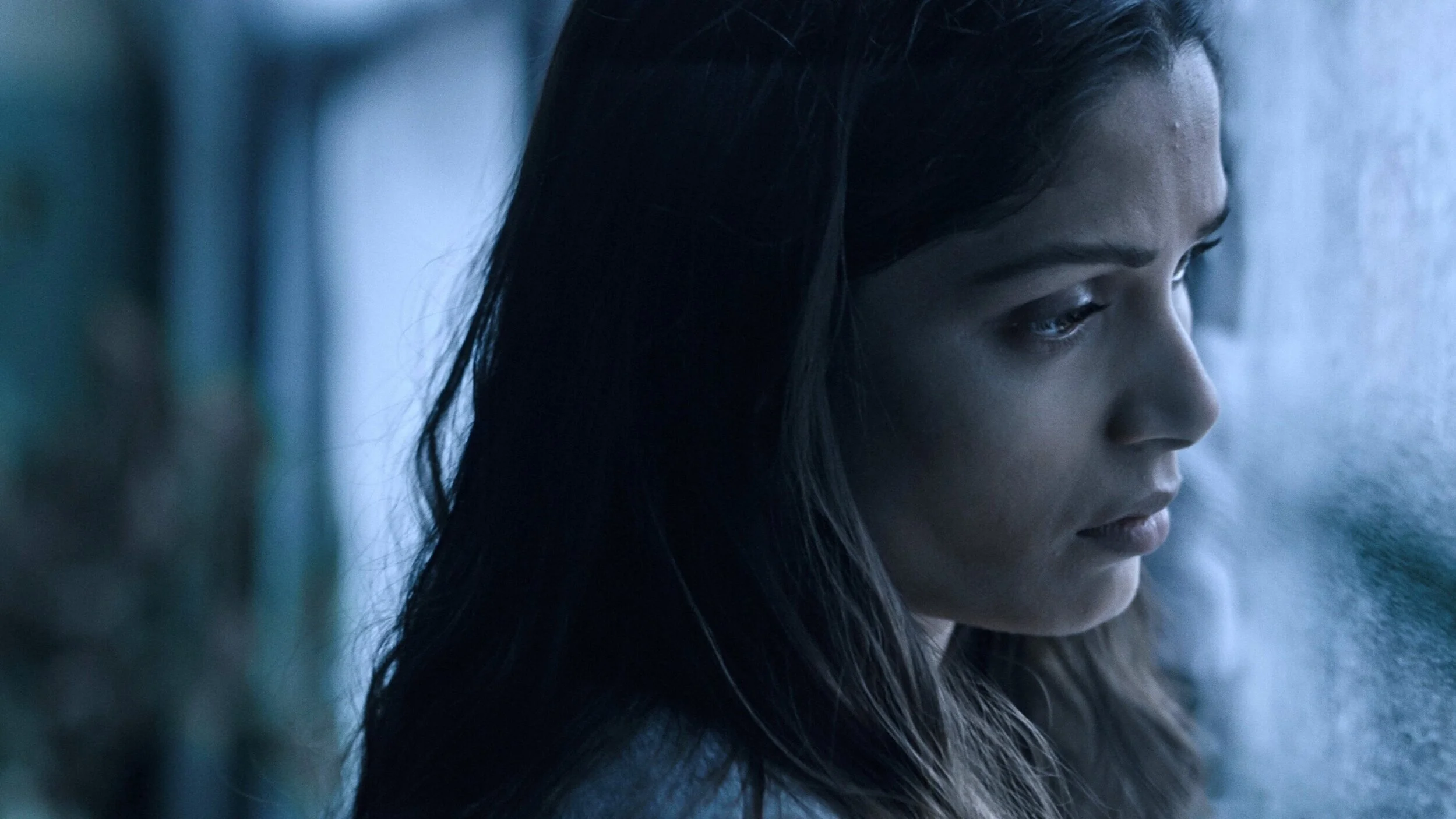Only
In the not-too-distant future, the world finds itself in the grip of a pandemic with no viable vaccine….
Only the lonely: Freida Pinto
Another week, another futuristic dystopia. This time the world is gripped by a pandemic with no foreseeable vaccine and with people virtually prisoners in their own homes. There is much talk of quarantine, sterilisation and men in masks. And billboards demand: ‘Get Tested. Report Yourself. Ensure the Future.’ Just what we need. The difference here, though, is that the virus – spread by a precipitation of ash generated by a rogue comet – is only lethal to the female sex. This conundrum, as baffling to the scientific community of 2022 as it is to us, is pretty much side-stepped in Takashi Doscher's post-apocalyptic drama. In fact, Doscher, whose second film this is, manoeuvres everything in an enigmatic fog so that his characters and the viewer are lost in mutual confusion. WTF!
To keep the viewer on tenterhooks, the Atlanta-born director – working from his own screenplay – unfolds his film in a fractured mosaic so that part of the fun is being kept in the dark. Or not. Like in many of these films, supermarkets have been looted, cars have been incinerated and anarchy is the order of the day. A novelty, though, is that tampons are being given away free at the corner shop.
The title, Only, is about as perplexing as the rest of Doscher’s universe, although A Male Place might not have had the same sense of occasion. So the film starts on ‘Day 400’ and then jumps around willy-nilly as the last woman on earth – Eva (yes, really) – played by Freida Pinto – decides what to do with her breasts. A government bounty of $200 million has been offered for the apprehension of any woman, as the fairer sex has become an indispensable commodity. So Eva tapes up her chest and pulls on a beanie, but still looks like a supermodel.
For any of this to connect or resonant with an audience, the narrative needs a modicum of cohesion and/or credibility. However, Doscher, a supreme stylist, has opted for a dreamlike state in which it’s hard to grasp a sense of human connection or even anxiety. It’s like observing a rather beautiful, if unsettling painting, but without the narrative traction. Take John Krasinski’s A Quiet Place – in which a handful of characters find themselves in a desolated and dangerous world. That not dissimilar scenario succeeded because we believed in the family dynamic – and because Krasinski knew which buttons to push. Here, it’s hard to care for Eva or her protective partner, Will (Leslie Odom Jr), because they’re given little human reference or depth. Equally unclear is whether Takashi Doscher is attempting to mount a global allegory on sexism – a gender-negative assault from outer space? – or just thought that his notion was a cool cinematic device. Only does, though, provide a worthy vehicle for Odom Jr (Harriet, Hamilton), who brings real presence to his scenes, while Sean Stiegemeier's murky cinematography is another major bonus.
JAMES CAMERON-WILSON
Cast: Freida Pinto, Leslie Odom Jr, Chandler Riggs, Jayson Warner Smith, Tia Hendricks, Joshua Mikel, Mark Ashworth, Richard Hempton, Noor Naghmi, Charles Green.
Dir Takashi Doscher, Pro Eyal Rimmon and Gabrielle Pickle, Screenplay Takashi Doscher, Ph Sean Stiegemeier, Pro Des Erik Louis Robert, Ed David Pergolini and Josh Land, Music John Kaefer, Costumes Dana Konick, Sound Jacob Flack.
Tadmor/Astrakan-Vertical Entertainment.
97 mins. USA. 2019. Rel: 5 July 2020. Available on Netflix. Cert. 15.


